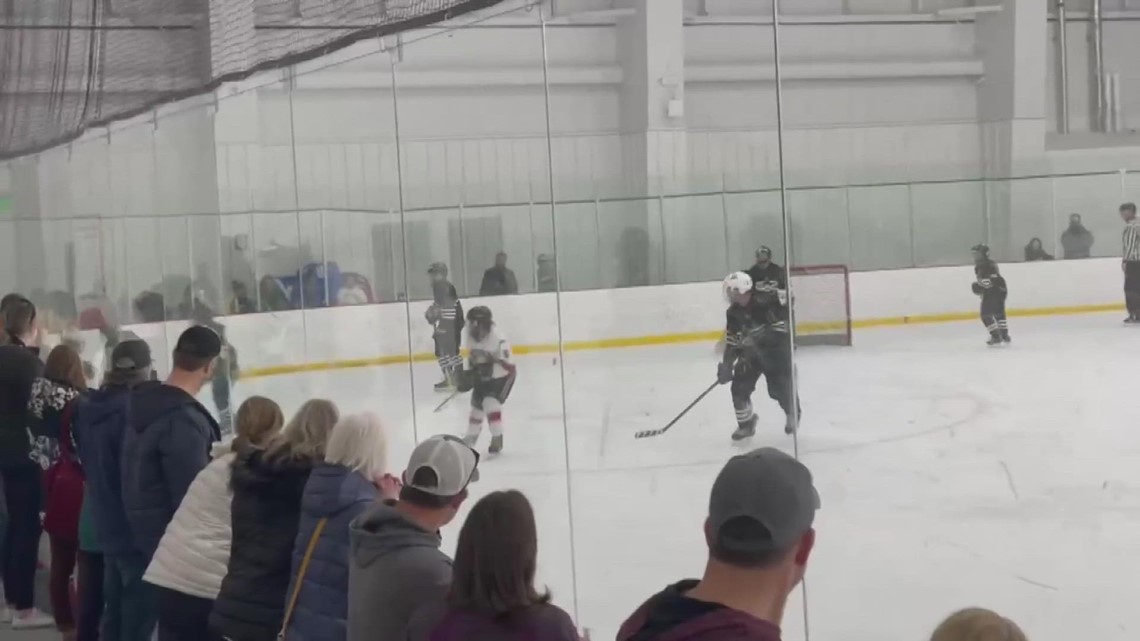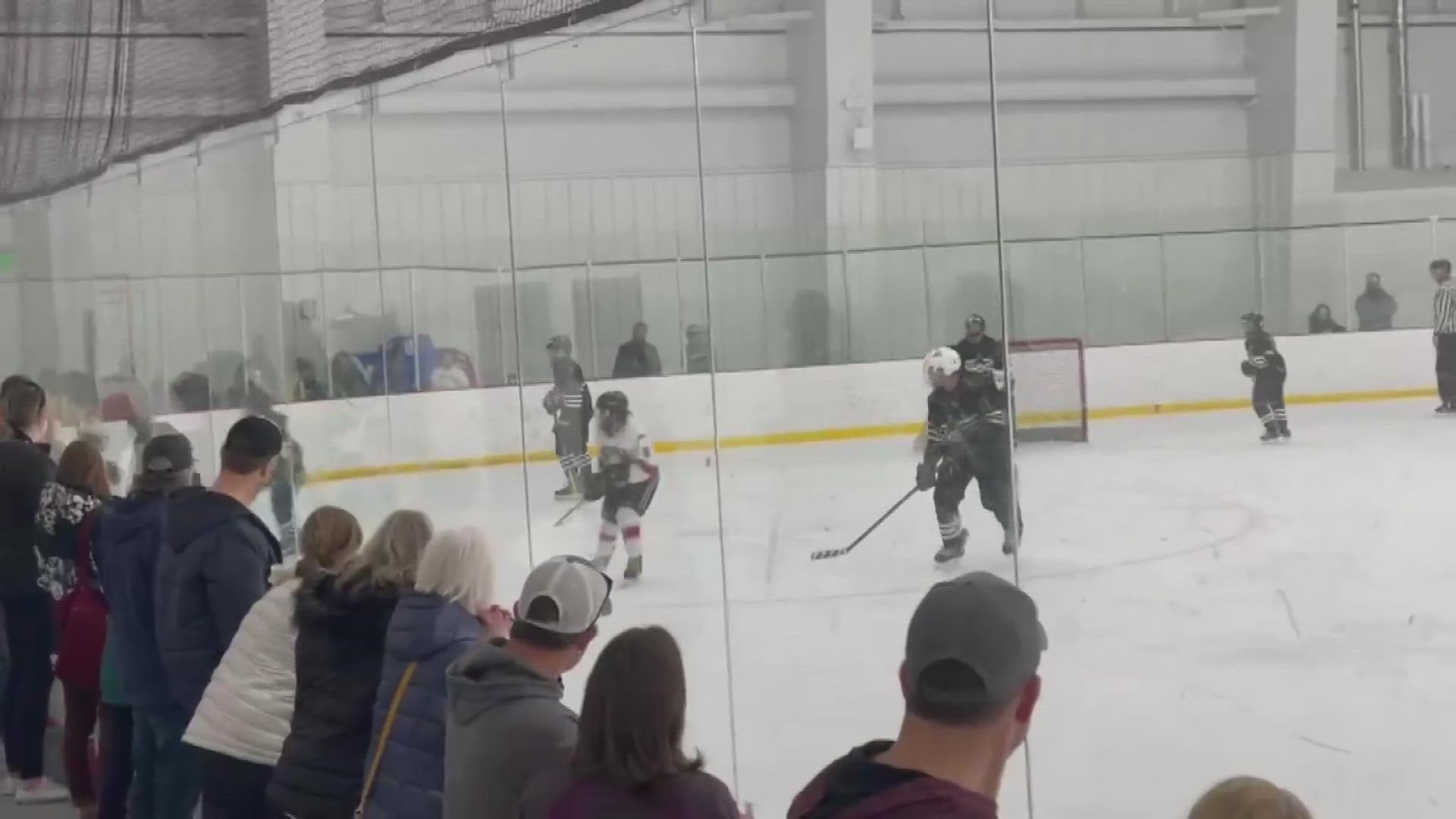COLORADO, USA — In the game to go to the finals, Margaret Fogarty said her 12-year-old son scored the winning goal, but the University of Denver Junior Pioneers never played that final game at the Mile High Meltdown Hockey tournament.
"The coaches and the director of our team made a very difficult decision to withdraw from that final game because of safety concerns," said Fogarty.
They were concerned the players weren't safe from parents.
"It was very competitive, and one of the dads from the opposing team threatened our children and was incredibly belligerent," said Fogarty, who added the parent was asking for her son.
"He said he was going to kick his <expletive> ass, and yeah it was terrifying," she said.
It might be terrifying, but it's not uncommon.
"This is a worldwide problem," said Brian Barlow, a collegiate soccer official. "This is a cancerous toxic problem that is poisoning youth sports."
Barlow started a Facebook page called "Offside" to call out abusive behavior from parents in youth sports. Many leagues have created a zero-tolerance policy to address the problem. The tournament Fogarty's son was playing in had one.


"Saying zero tolerance is the new political thoughts and prayers," said Barlow. "We all know thoughts and prayers lead to nothing, there's no execution to that. It's a simplistic pleasantry that you say because you feel bad about something with no action behind it. Same thing for zero tolerance."
"People implement programs that actually don't work, that actually have no data behind them to say that it's effective," said Dr. Sheryl Ziegler, a child psychologist.
Dr. Ziegler said the research is clear; parents whose identities are tied to their kids' sports are more likely to get angry and emotional. Ziegler said leagues should require training for parents.
"Yes, we are teaching adults essentially how to regulate really big emotions," she said. "And that's something that's again, it's all over the country, it's a problem."
SUGGESTED VIDEOS: Mental Health & Wellness

